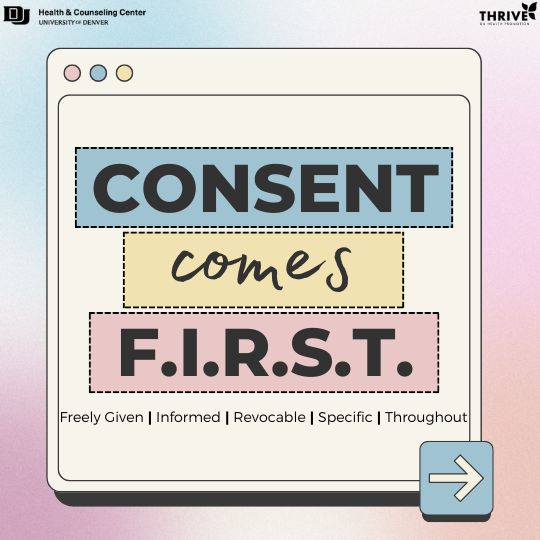What is Consent?
Simply defined, consent is a “mutual agreement to engage in an activity.” While largely talked about in sexual contexts, consent has important non-sexual applications as well!
As individuals, it is important that we practice and prioritize consent in all of our interactions so that it becomes a natural part of our relationships and a shared expectation within our community.
The definition can appear simple, but the practice is not. Consent is nuanced and can be complicated due to cultural and sociaetal differences, shame, and stigma surrounding sex. That’s why, when working toward a consent-centered community, we also embrace sex positivity! When we are sex positive, communication around our sexual preferences, needs, and boundaries becomes more comfortable and can even become an effective tool to prevent harm and promote pleasure.
To help understand some of the basics of consent, we use the acronym F.I.R.S.T.! Each letter represents a central tenant of consent.





